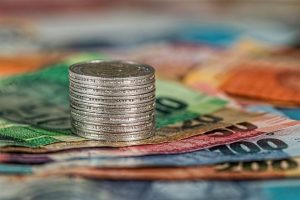
Umm Muhammed Umar
Consumers were hit by a ‘double whammy’ this month – not only will they have to pay around 14% more for the electricity, but fuel prices also went up by almost a Rand this week. This means that the price of fuel has risen from R14, 86 in January, to more than R18,00 a litre in August, and with the added increases in utility bills, consumers will struggle to keep up. Economist and CEO of Debt Rescue, Neil Roets elaborated on the impact these price hikes could have on already debt-ridden consumers.
Speaking to Radio Islam, Roets emphasized that the impact is going to be devastating because, not only will consumers be paying more for fuel and electricity, but that, “the problem is that those two price hikes will cause the prices of other goods and services to also go up.” He said that the sad reality was that when fuel price increases occur and the electricity price increases, salaries are not increased in line with those increases. This makes life much more difficult for consumers who are already debt ridden; especially now with unemployment being rife, and caps on salaries.
For some people, the sad reality is that they are going to have to make choices about what their money is spent on, even regarding basics, such as having to make a choice between buying bread or putting petrol in your cars tank. Roets said, “So many people are living on the knife’s edge that a lot of people might by something small, like this, be pushed over the edge and become over indebted and default on their accounts.” He said that people should be very vigilant in spending money on any luxury goods. Roets advised consumers to ensure that they had budgets in place, and that they lived according to those budgets, and also to make provision for any unforeseen circumstances.
Yes, certainly unforeseen circumstances. In terms of where we find ourselves since the start of the pandemic, but what percentage did applications grow of consumers applying for debt rescue.
Initially during South Africa’s lockdown there were a lot of people inquiring about debt counselling, says Roets, but not as many people applying for it. He says a lot of people were waiting for government or credit providers to come to their house, in the form of giving financial aid or writing off debts, but that did not happen or not to such an extent that it made a difference in people’s lives. The payment holidays the ran out. Eventually people realized that they had to look after themselves, and be responsible. People then did apply for debt counselling, as they realized that this is a process that can help you during trying times to pay off your debt in an affordable manner without losing your assets. Roets said, “South Africa is actually very fortunate in that regard as its the best kind of legislation of its kind in the world. And, you know, debt counselling in South Africa, even allows you to put your home loans under debt review, so this this is really a process that’s very relevant during these times and it has helped thousands of people.”
With the loss of millions of jobs, and a growing number of South Africans forced to apply for Sassa grants, in order to survive, outstanding consumer debt is close to, according to Roets estimates, close to R1.9 trillion. Roets said, “South Africa is one of the countries in the world, that just doesn’t have a savings culture. So, when bad times arises, it heats up very hard because we really do not have a lot of savings, put away for difficult times.” Over indebtedness continues growing daily because during the initial lockdown, a lot of businesses closed down and a lot of people lost their jobs. But, businesses are still closing down, as a result of these difficult times. Businesses that used all their resources just to keep their doors open as long as possible, now they’ve reached a point where it’s impossible to keep afloat, as a result of the global pandemic.
Roets advised consumers, in order to survive economically, to:
- Draw up a pandemic budget. And that budget must obviously be very strict and take into account all these unforeseen circumstances like petrol prices going up electricity going up, which in turn causes that or other products do to go up in price.
- Have an emergency fund within your budget.
- Know your rights and what remedies you have during these difficult times. If consumers do find themselves in a situation where they start defaulting on their credit agreements, there is definitely help out there and crisis relief in the National Credit Act, and therefore debt counselling.







0 Comments